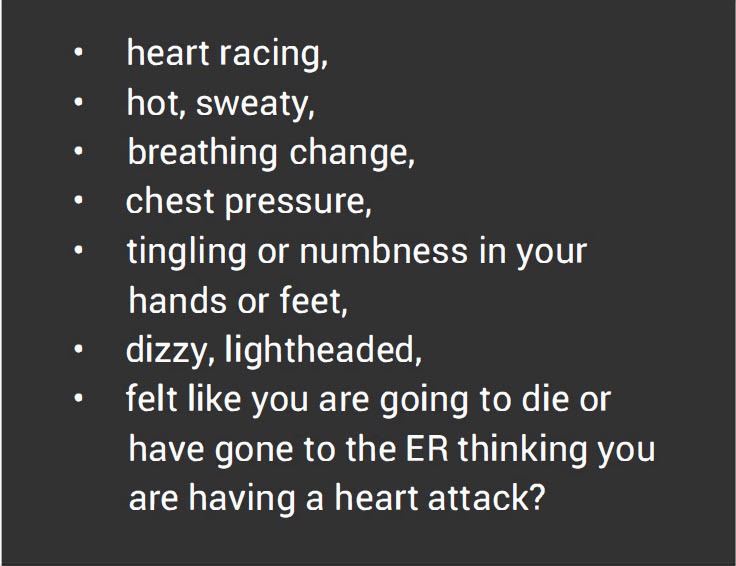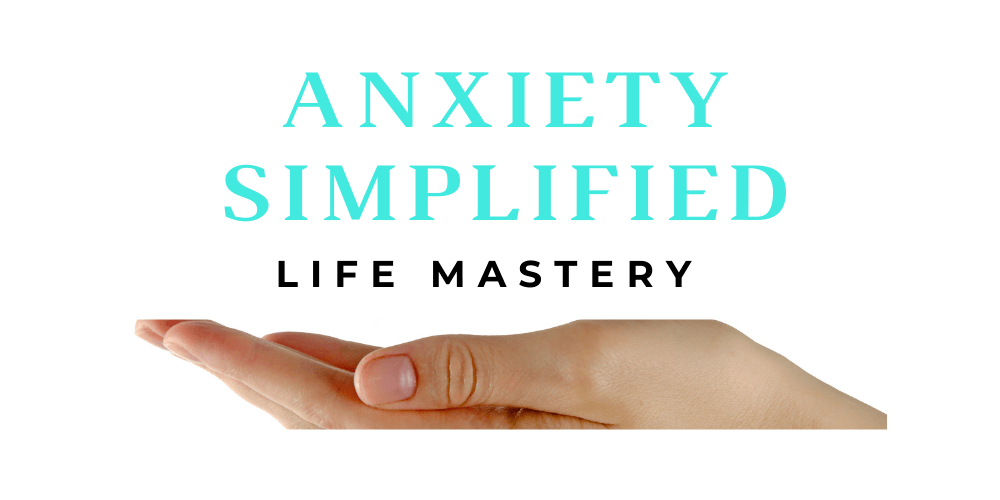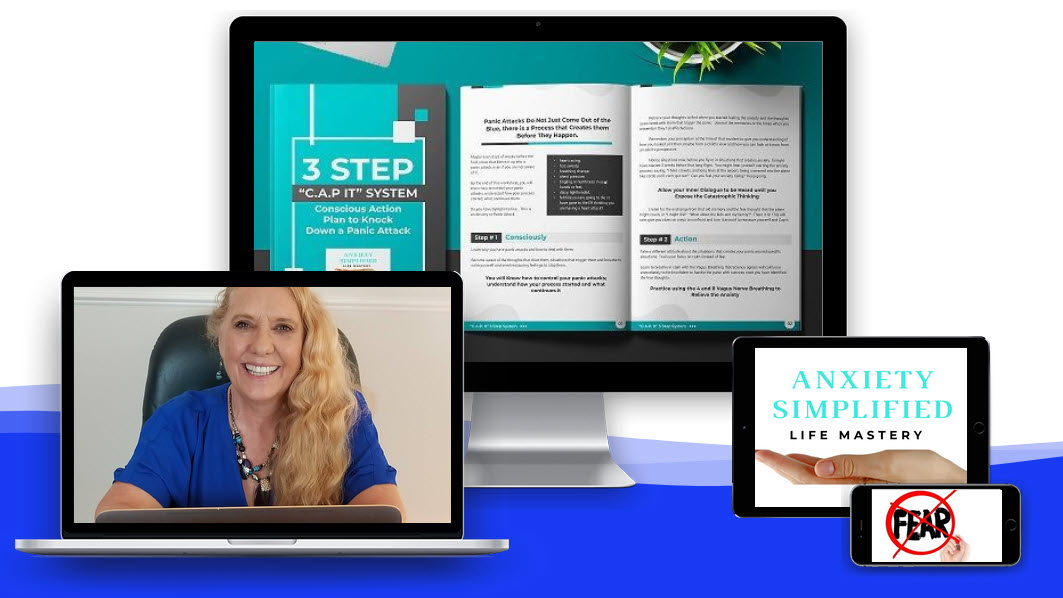If you've ever suffered from a panic attack, you know how terrifying it can be. So, can you die from a panic attack? The good news is that a panic attack cannot kill you. It is not fatal. Let's take a closer look at what a panic attack is, what you can do if you have one, and how to obtain panic attack treatment.

1
So, What Exactly Is a Panic Attack?
Consider being on a crowded bus. Suddenly, your heart starts racing and pounding in your chest. Your throat closes and you begin to feel dizzy. You cast a glance at the door, fearful that if you don't get off the bus, you'll lose control. It's a panic attack.
A panic attack, according to the Diagnostic & Statistical Manual of Mental Disorders, 5th Edition (DSM-5), is characterized by a sudden onset of terror accompanied by at least four physical and emotional symptoms. Panic episodes start rapidly and usually end after 20 minutes to half an hour.
A panic attack can cause any of the following symptoms:
- Palpitations, a racing pulse, or a rapid heartbeat
- Sweating
- Shaking or trembling
- Feeling out of breath
- Choking sensation
- Pain or discomfort in the chest
- Nausea or stomach pain
- Dizziness, unsteady feeling, feeling lightheaded, or faintness
- Feeling cold or hot
- Tingling or numbness
- Unreality or feeling disconnected from yourself
- The fear of losing your sanity and control
- The fear of dying
Panic attacks are rather common. In fact, approximately 28% of adults will suffer from a panic attack at some point in their lives. Many people who experience a panic attack never have an episode again. People who suffer from panic attacks, on the other hand, are more likely to suffer from another mental health issue, such as panic disorder or depression.

2
What Can Trigger a Panic Attack?
Nobody knows for certain. Researchers believe that patients who suffer from panic episodes may mistake environmental cues or physical sensations as hazardous. Certain risk factors for panic attacks have also been identified in studies. These include the following:
- Being a woman
- Being under the age of 60
- Having a mental illness, such as depression
- Having been diagnosed for anxiety disorder
- A stressful life event, such as a loved one passing away.
3
Are panic attacks harmful?
You will not die as a result of a panic attack. However, when you have one, you may feel as if you're dying. This is because many panic attack symptoms, such as chest pain, are comparable to those of serious medical illnesses such as a heart attack.
You may not always be able to distinguish between the symptoms of a panic attack and those of another ailment. In such cases, you should seek medical assistance right away. Knowing your panic attack triggers and any medical disorders you may have, on the other hand, can help you distinguish between a panic attack and an urgent medical problem.
Some medical disorders are more common in panic attack sufferers than in non-panic attack sufferers. One reason for this is that the risk factors for panic episodes and some medical disorders are similar. Exposure to a stressful life event, for example, is a risk factor for having panic episodes and certain heart diseases.
Here are some medical disorders that are common in panic attack sufferers:
- Asthma
- Diabetes
- Chronic obstructive pulmonary disease (COPD)
- IBS or Irritable Bowel Syndrome
- Coronary artery disease
- Extreme hypertension
- Strokes
One or two panic episodes at some point in life will not cause long-term problems for most people. Repeated panic episodes, on the other hand, might add to health issues such as sleep disorders or cardiac ailments.
They can also prevent you from doing things you typically do, such as running errands.
Perhaps you are afraid of having a panic attack in public, so you stay at home as much as possible. If this is the case, you may be suffering from panic disorder. It is diagnosed in persons who experience recurring, uncontrollable panic attacks and avoid settings in which they dread having another one.
Stop Panic Attacks Now
This course is video based to be able to re listen to over and over again with a workbook to follow again or reuse you conquer one trigger you can see your progress to feel you can do this!
4
Things You Can Do to Prevent Having a Panic Attack
When you're having a panic attack, you feel like you're losing control. There are, however, things you can do at the moment to restore control of your body and emotions.
Here are a few ideas:
- Get out of the situation that's causing your panic attack.
- Close your eyes and imagine yourself in a quiet, safe environment.
- Pay attention to your five senses. Take note of what you can smell, feel, see, hear, and taste.
- Breathe slowly and deeply.
- Slowly count to ten. Repeat the count, up to 20 if necessary.
5
How Can You Find Help if You Have Panic Attacks on a Regular Basis?
Inform a healthcare provider or a mental health expert if you are experiencing frequent panic attacks. Unfortunately, many people do not notify their provider of their attacks, causing them to suffer needlessly. There are treatments available to assist you in feeling better.
A healthcare professional may recommend that you consult a psychiatrist or therapist if you do not already have one. A therapist will discuss your symptoms with you in order to help you better understand and manage them.
Cognitive behavioral therapy, psycho dynamic therapy, and supportive therapy are all common treatments for panic attacks. A therapist will help you manage your anxiety through cognitive behavioral therapy by gradually tackling your triggers in a safe and supportive environment. In supportive and psycho dynamic therapies, you may be able to understand the roots of your stress or triggers and develop better coping strategies.
If your symptoms are severe, your doctor may also advise you to try an anti-anxiety drug. Alprazolam (Xanax), fluoxetine (Prozac), and sertraline (Zoloft), are other examples. These drugs aid by reducing both the physical and emotional feelings that occur during a panic attack. Some people take anti-anxiety medication and go to therapy.
Don't assume that if you're already seeing a professional for a mental health illness or a medical ailment, they're aware of your panic attacks. Panic attacks frequently go undiagnosed, even if you have a condition where they are common. Discuss all of the symptoms you notice with your physician.
Stop Panic Attacks Now
This course is video based to be able to re listen to over and over again with a workbook to follow again or reuse you conquer one trigger you can see your progress to feel you can do this!

